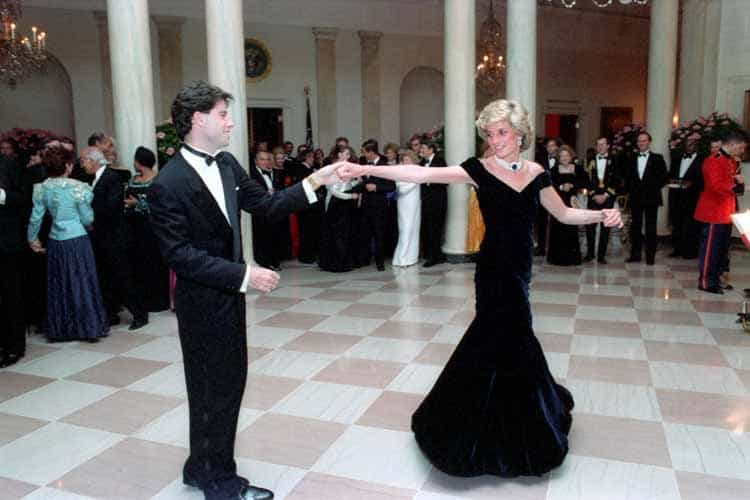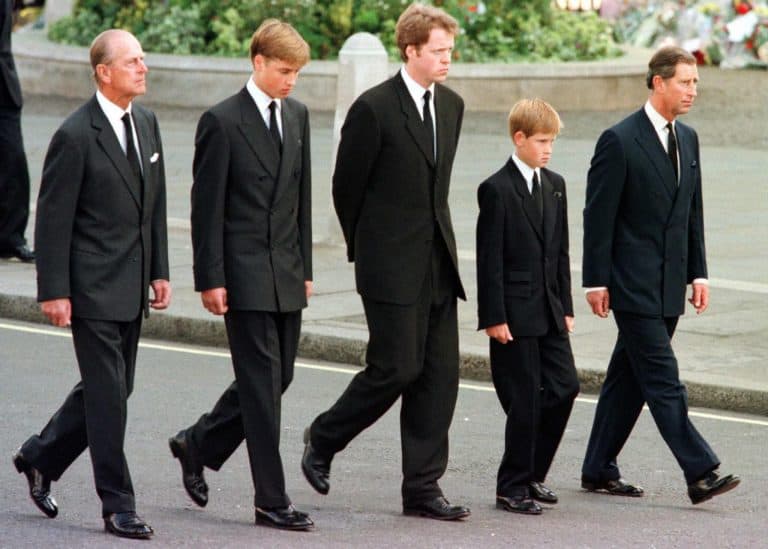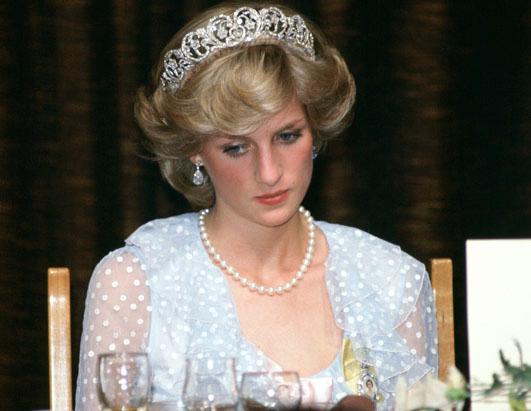And when I think upon that night
My eyes are dim with tears.
From William Wordsworth
“Strange fits of passion I have known”
The death of Princess Diana was the first sad memory of my life. I saw my mother’s eyes dim with tears as we reclined to watch the Sunday evening news on August 31, 1997. A week later on September 6, we turned on the funeral march. The procession moved forward, but the eyes of Diana’s sons remained downcast, fixed on the ground below. The fairy tale life of the Princess of Wales had a decidedly unhappy ending.
Twenty years after the death of the the princess, the world is still grappling with the meaning of her death. ABC, National Geographic, HBO, and BBC have put out moving documentaries to commemorate Diana. Their presence and popularity tell us that her life and death have resonated profoundly with ours.
***
Before contemplating why the princess has touched our hearts in such a powerful way, let’s review her story. Born in 1961, Diana Spencer rapidly rose into the spotlight when she became engaged to Prince Charles of Wales, the oldest son of Queen Elizabeth II and apparent heir to the royal crown of the United Kingdom. Diana commanded public attention from the beginning of the marital announcement. She “showed an intrinsic talent for connection” and “won the people’s love even as she evolved into a global superstar.”
However, the marriage had its leaks and cracks resulting in a separation in 1992 and a divorce in 1996. Her split from the royal line had the strange effect of increasing her fame. She came to be seen as her own person, capable of shining independently. She did shine–until the abrupt car accident on that tragic summer night in Paris. A mere year after her divorce, she was dead at the age of 36. Thirty-two million people watched her funeral a week later. Then it was over.
***
Diana’s story is gut wrenching. It elicited an emotive response from millions in 1997, and the spectre of this milieu of feelings has resurfaced this year. It’s kind of strange. Our communal experience of the princess has conjured a “spontaneous overflow of powerful feelings,” in the words of the English Romantic poet William Wordsworth. Her charming warmth, regal discontent, and tragic end resonate with our romantic hearts. When we contemplate the life and death of Diana, we return to the basic fact that we humans are intensely emotional beings. So it was with the princess, and so it is with us.
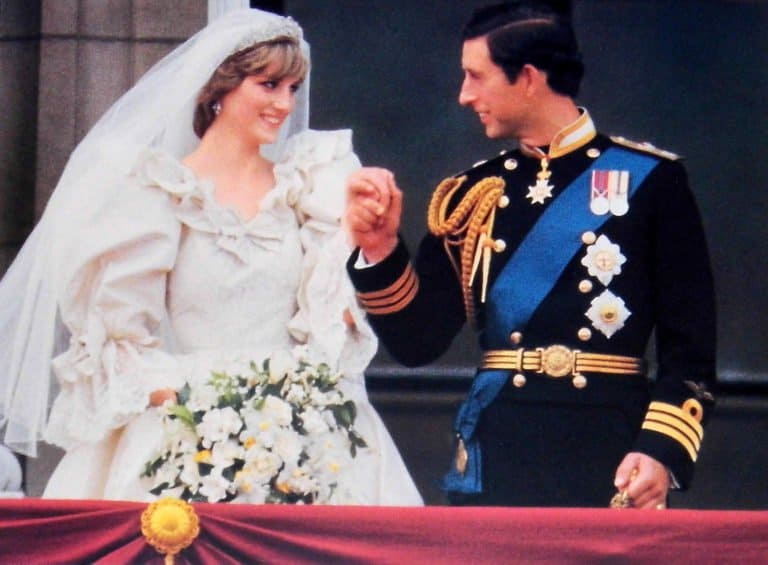
The wedding of Prince Charles and Princess Diana. Courtesy of Joe Haupt of the Flickr Creative Commons.
Charm is an indescribably subtle force of emotional attraction, and Diana had it. National Geographic puts it well: “To the 750 million viewers who watched her 1981 wedding on television, Diana was a charming, down-to-earth princess.” Her smile was warm and knowable. Hers was a provincial beauty more than that of an actress or a model. At first, people wondered if she didn’t quite know what to do with herself. Her life had changed so dramatically, so quickly. In the typecast of Cinderella, she wasn’t stuffy or conceited. Rather, Diana used her newfound power to raise awareness and money for charities, becoming patroness of more than one hundred before her divorce.
Above all, the public loved her giggles. Her son Harry recalls, “All I can hear is her laughter in my head.” He steals the words from Wordsworth: “Her laughter light/Is ringing in my ears.” Remembering someone’s laughter is an emotional thing. Behind its sweet sound we perceive an individual soul overflowing with joy.
The princess bore both a charming smile and a pensive frown. Beneath her cheerful beauty dwelt the melancholic duo of anxiety and sadness. Time would reveal that there were flaws in the seemingly perfect narrative. She would speak publicly of “her troubled marriage, her struggle with bulimia, and her difficulty handling life in the public eye.” Depressing lows followed her romantic highs. Perfection was as unattainable for her as it is for us. The verse of the post-romantic poet Rubén Darío captures something of the heartrending, cryptic sorrow that haunted Diana:
The princess is sad. What is troubling the princess?
Sighs escape her strawberry mouth
That has lost its laughter, that has lost its hue.
The princess is pale in her chair of gold.
Whether a product of infidelity or not, bitterness and despondency entered her life. She had given herself over to the fairy tale, but it left her disillusioned. This emotion is all-too-human. Love and life involve risk. We occasionally experience heights that seem as marvellous as Diana’s princely wedding, but we know it is folly to cling to such a moment as if they were eternal. The princess was open about her struggles throughout her separation and divorce, and people could resonate. Through her, we see a glimpse of our own reality: there is no such thing as heaven on earth — even for royals.
Shortly after the painful divorce came the tragic car accident. It is incredibly agonizing to live through the death of a person taken before her time. Half of the world felt that it had come to know Diana in the sixteen years spanning her marriage and her funeral. The grieving process was universal. Diana’s death left everything in a state of chilling quiet that all our hearts can feel but only romantic poets can sound:
Thus Nature spake–The work was done–
How soon my Lucy’s race was run!
She died, and left to me
This heath, this calm, and quiet scene;
The memory of what has been,
And never more will be
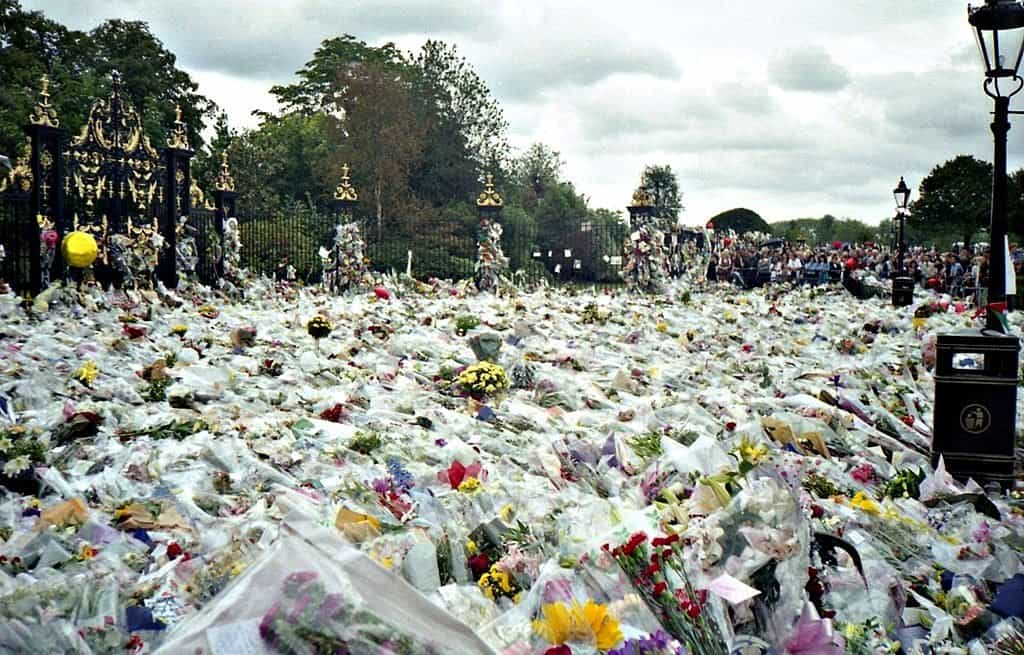
***
For those of us who’ve reflected on these twenty years without Diana, the memories reopen our wounds. Emotions pour forth as we watch videos, gaze at photos, and read her story anew. It’s a distinctly human phenomenon. Her charming giggles have made us smile, her weighty tears have mingled with ours, and her tragic death has put us face-to-face with our own. She opened her heart to us with all of its feelings, and her memory invites us to do the same. May we listen to our hearts and share them with others in imitation of Diana, Princess of Wales, who in our memory rests yet nevermore shall be.

